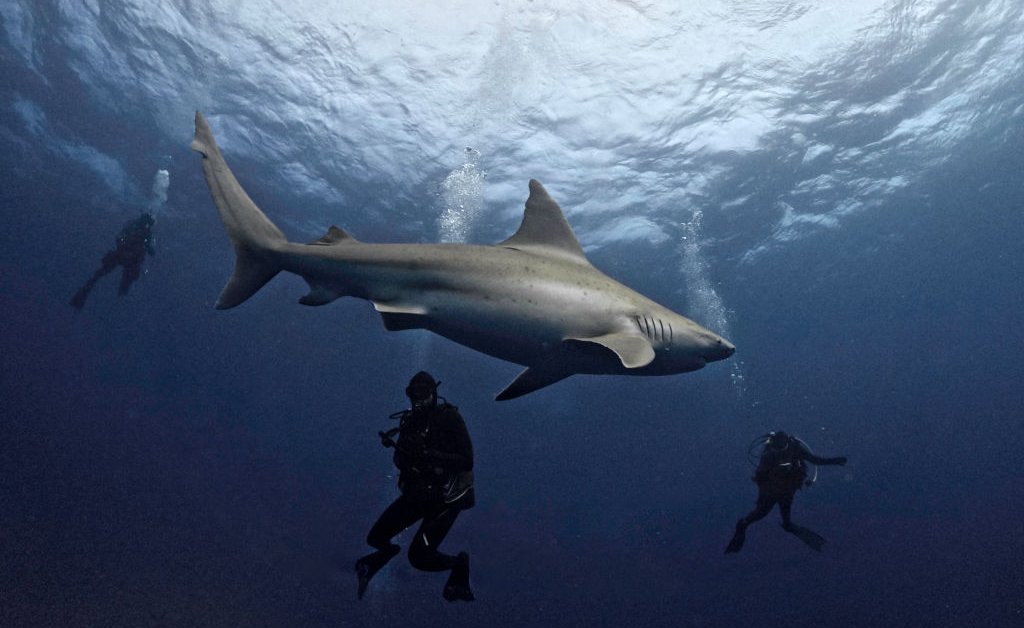Jaws' Impact: How The Film Changed Our View Of Sharks And Marine Conservation

Welcome to your ultimate source for breaking news, trending updates, and in-depth stories from around the world. Whether it's politics, technology, entertainment, sports, or lifestyle, we bring you real-time updates that keep you informed and ahead of the curve.
Our team works tirelessly to ensure you never miss a moment. From the latest developments in global events to the most talked-about topics on social media, our news platform is designed to deliver accurate and timely information, all in one place.
Stay in the know and join thousands of readers who trust us for reliable, up-to-date content. Explore our expertly curated articles and dive deeper into the stories that matter to you. Visit Best Website now and be part of the conversation. Don't miss out on the headlines that shape our world!
Table of Contents
Jaws' Impact: How the Film Changed Our View of Sharks and Marine Conservation
A cultural phenomenon, Steven Spielberg's Jaws terrified audiences in 1975. But its legacy extends far beyond box office success; the film profoundly, and arguably negatively, shaped public perception of sharks and the broader marine conservation movement.
The summer of '75 saw moviegoers flocking to theaters to witness the terrifying power of the great white shark, a creature rendered as a relentless killing machine in Spielberg's masterpiece. While a cinematic triumph, Jaws inadvertently launched a global wave of shark phobia – a phenomenon now known as "shark hysteria" – that continues to impact conservation efforts today.
The Rise of "Shark Hysteria"
Before Jaws, sharks were largely unknown to the general public. While fishermen and marine biologists understood their importance in the ecosystem, the average person held a relatively neutral, if not slightly curious, view of these magnificent predators. Jaws changed all that. The film's visceral depiction of a man-eating shark fueled widespread fear and misunderstanding. This fear translated into a dramatic increase in shark killings, often driven by panic and a misguided sense of self-preservation. Coastal communities saw a surge in shark hunts, significantly impacting already vulnerable populations.
Long-Term Effects on Shark Populations and Conservation
The consequences of this shark hysteria are still felt today. Many shark species, already facing threats from overfishing and habitat destruction, suffered further population declines due to the post-Jaws culling. The film's impact on public perception created a significant hurdle for marine conservation efforts. Securing funding and public support for shark protection programs became significantly more challenging when faced with deeply ingrained fear and misinformation.
Reframing the Narrative: Beyond the Fear
Fortunately, a growing body of scientific research and educational initiatives are working to counter the negative legacy of Jaws. Scientists are highlighting the crucial role sharks play in maintaining healthy ocean ecosystems. They are vital apex predators, regulating prey populations and contributing to overall biodiversity. Organizations like the Pew Charitable Trusts and the Shark Trust are actively involved in promoting shark conservation, conducting research, and advocating for stronger protective measures. Documentaries like Planet Earth II and Blue Planet II have helped showcase the beauty and importance of sharks, subtly challenging the negative portrayal established by Jaws.
The Importance of Education and Responsible Reporting
Moving forward, responsible reporting and effective science communication are crucial to dispel the myths perpetuated by Jaws. Education plays a vital role in shifting public perception from fear to understanding and appreciation. By emphasizing the ecological importance of sharks, we can foster a more responsible and sustainable approach to marine conservation. Learning about sharks from reputable sources, engaging in citizen science initiatives, and supporting organizations dedicated to shark protection are all effective ways to contribute to a more positive future for these magnificent creatures.
A Call to Action: Protecting Our Oceans
The legacy of Jaws serves as a stark reminder of the power of media to shape public perception and influence conservation efforts. While the film remains a cinematic masterpiece, its impact on shark populations and the marine environment necessitates a concerted effort to correct the misinformation and promote a more nuanced understanding of these essential ocean inhabitants. Let's learn from the past and work towards a future where sharks are valued, protected, and celebrated for their crucial role in a healthy ocean ecosystem. Learn more about shark conservation efforts near you and consider supporting organizations dedicated to their protection.

Thank you for visiting our website, your trusted source for the latest updates and in-depth coverage on Jaws' Impact: How The Film Changed Our View Of Sharks And Marine Conservation. We're committed to keeping you informed with timely and accurate information to meet your curiosity and needs.
If you have any questions, suggestions, or feedback, we'd love to hear from you. Your insights are valuable to us and help us improve to serve you better. Feel free to reach out through our contact page.
Don't forget to bookmark our website and check back regularly for the latest headlines and trending topics. See you next time, and thank you for being part of our growing community!
Featured Posts
-
 Controversy Erupts Mark Cuban And The Harris Vp Vetting Process
Jun 21, 2025
Controversy Erupts Mark Cuban And The Harris Vp Vetting Process
Jun 21, 2025 -
 Did The Harris Campaign Request Vp Vetting Files From Mark Cuban
Jun 21, 2025
Did The Harris Campaign Request Vp Vetting Files From Mark Cuban
Jun 21, 2025 -
 Todays Forecast Muggy Conditions With A Chance Of Late Day Showers
Jun 21, 2025
Todays Forecast Muggy Conditions With A Chance Of Late Day Showers
Jun 21, 2025 -
 Mark Cuban Rejected Kamala Harris 2020 Vp Offer
Jun 21, 2025
Mark Cuban Rejected Kamala Harris 2020 Vp Offer
Jun 21, 2025 -
 Understanding Us Airline Suspension Of Middle East Flights
Jun 21, 2025
Understanding Us Airline Suspension Of Middle East Flights
Jun 21, 2025
